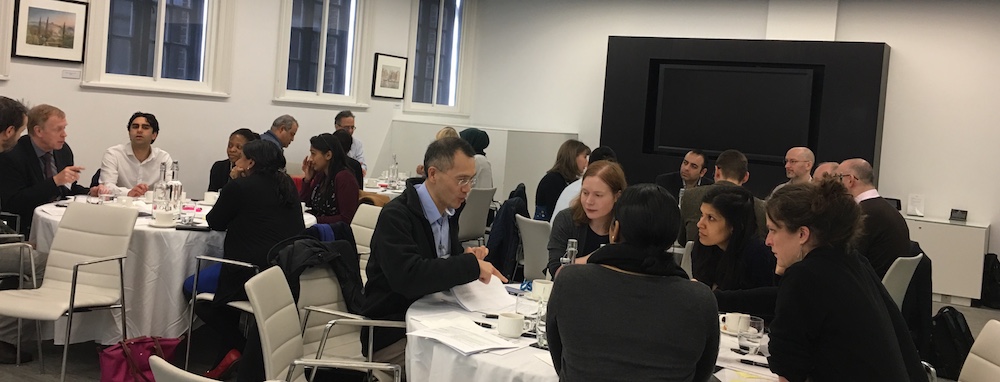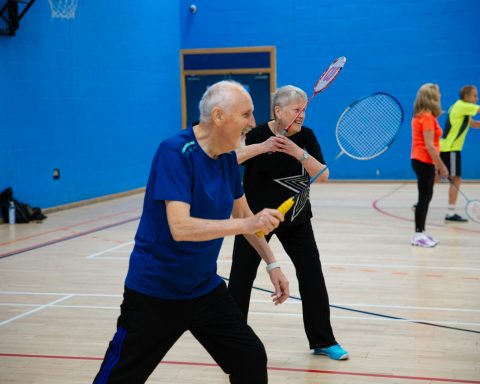Setting research priorities in primary care: a co-creation symposium to generate ideas from the coal-face
Written by Victoria Tzortziou Brown, Clare Wilkinson, Kamal Mahtani, Geoff Wong, Azeem Majeed, Philip Evans, Thomas Round, and Roger Jones
Background
Although over 90% of patient contacts within the NHS occur in primary care, many of the interventions used in this setting frequently lack a sound, up-to-date, scientific basis.[footnote]Primary care research: The MRC’s proposals. G., Radda. 426: 872 British Journal of General Practice , 1998, Vol. 48.[/footnote] The applicability of research findings and relevant guidelines to front-line primary care practice is increasingly being questioned.[footnote]A review of clinical practice guidelines found that they were often based on evidence of uncertain relevance to primary care patients. N Steel et al. 11:1251-1257 Journal of Clinical Epidemiology, 2014, Vol. 67.[/footnote] Additionally, there seems to be a mismatch between what patients and clinicians want to see researched and the research that is actually being carried out.[footnote]Patients’, clinicians’ and the research communities’ priorities for treatment research: there is an important mismatch. Crowe S, Fenton M, Hall M, Cowan K, Chalmers I. Research Involvement and Engagement, 2015, Vol. 1.[/footnote]
There is an increasing recognition that research questions should be generated with input from front-line clinicians and patients and a shift is needed from a unidirectional connection between research and practice to a bi-directional one.[footnote]Evidence Generating Medicine: Redefining the Research-Practice Relationship to Complete the Evidence Cycle. Embi PJ, Payne P. S87-S91, Medical Care, 2013, Vol. 51.[/footnote]
The Intervention
The purpose of the Symposium was to bring together front-line primary care professionals (including GPs, Practice Managers, Nurses and Allied Healthcare Professionals) as well as NHS commissioners and Academics to generate ideas for primary care research.
The idea was discussed with colleagues from the NIHR HTA Primary Care Panel and the RCGP Clinical Innovation and Research Centre (CIRC) teams and a novel approach was developed that had the potential to facilitate the identification of evidence gaps.
The first stage of the intervention included an online survey which invited participants to reflect on their every-day practice and submit their research ideas online.
The second phase was the Symposium itself which took place at the Royal College of GPs. This incorporated an interactive session which covered the importance of bridging the gap between evidence and practice, the process from research idea to research commissioning and the basic steps of formulating research questions. The interactive session was then followed by facilitated round-table discussion using a semi-structured approach during which delegates went through a process of developing and prioritising research questions.
Significance and potential of the symposium
The Symposium provided a unique opportunity for primary care researchers, front-line professionals and commissioners to identify gaps in current evidence base and formulate key themes for primary care research.
The survey generated 44 research ideas. Respondents included GPs, nurses, physiotherapists, data analysts, commissioners and administrators at GP practices.
The Symposium was attended by 50 frontline healthcare professionals across a wide range of disciplines. It generated 15 additional research questions with themes around end of life, technology, mental health and staff wellbeing. These were prioritised by delegates.
The themes identified have been shared with relevant stakeholders and will be considered by the NIHR HTA Primary Care Panel during their research theme identification process.
We are working with relevant stakeholders so that the Symposium can become an annual event which will offer an opportunity for frontline professionals to shape the type of research commissioned for policy and applied healthcare provision and will assist towards bridging the gap between research, commissioning and clinical practice.
Acknowledgements
The Symposium was funded by NIHR and organised by QMUL, Barts and the London School of Medicine and Dentistry in collaboration with members of the NIHR HTA Primary Care panel and the RCGP Clinical Innovation and Research Centre (CIRC) teams.
References
1. Primary care research: The MRC’s proposals. G., Radda. 426: 872 British Journal of General Practice , 1998, Vol. 48.
2. A review of clinical practice guidelines found that they were often based on evidence of uncertain relevance to primary care patients. N Steel et al. 11:1251-1257 Journal of Clinical Epidemiology, 2014, Vol. 67.
3. Patients’, clinicians’ and the research communities’ priorities for treatment research: there is an important mismatch. Crowe S, Fenton M, Hall M, Cowan K, Chalmers I. Research Involvement and Engagement, 2015, Vol. 1.
4. Evidence Generating Medicine: Redefining the Research-Practice Relationship to Complete the Evidence Cycle. Embi PJ, Payne P. S87-S91, Medical Care, 2013, Vol. 51.








5